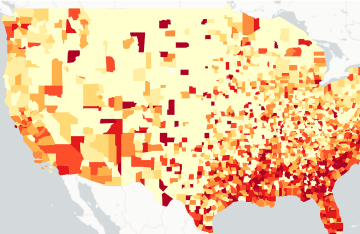New Institute Seeks A Remedy for Medical Misinformation
The Penn Medical Communication Research Institute brings together interdisciplinary researchers with a mission to improve medical communication and health literacy.

Penn Medicine’s Smilow Research Center. Photo courtesy of Penn Medicine.
How often have you woken up with a mysterious ache or pain, and immediately turned to Dr. Google instead of getting in touch with your actual doctor? Internet searches are a common, quick way to get answers, but also a profound shift in how many of us now access medical information.
While online medical information has the potential to make people more informed and health literate, it can also be harmful – as demonstrated by the rampant and ongoing spread of medical misinformation during the COVID-19 pandemic. How can medical messages do the most good while reducing the harmful side-effects?

The Penn Medical Communication Research Institute (PMCRI) is a new collaboration between the Annenberg School for Communication and Perelman School of Medicine at the University of Pennsylvania aiming to find out how to reduce medical misinformation. Led by Anne R. Cappola, M.D., Sc.M., a Professor of Medicine at the Perelman School, PMCRI is supporting research that helps determine how patients, especially those in vulnerable groups, can best access reliable, effective information. It also seeks strategies to boost trust in scientific research and healthcare providers – rather than search engine results – as primary sources of medical knowledge.
As director, Cappola brings comprehensive expertise as a clinician, investigator, and medical journal editor. Her role is to connect and support the many experts across Penn who have expertise in different facets of the problem, including researchers from the Annenberg School for Communication, Penn Nursing, Perelman School of Medicine, and School of Engineering and Applied Sciences.
“Surprisingly little research has been performed to understand the flow of medical communication and how medical misinformation propagates,” Cappola says.
PMCRI’s research is already underway, having awarded grants to five pilot projects, each listed below with their principal investigators:
Assessing Misinformation in Healthcare Advertising
The researchers will develop and test a tool designed to assess misinformation across various domains of health advertising — including implantable devices, supplements, hospitals/health systems, clinical service providers, insurance companies, and assistive devices.
- Matthew McCoy, Ph.D., Perelman School of Medicine
- Ari Friedman, MD, Ph.D., Perelman School of Medicine
Reducing Medical Bias Among Clinicians-in-Training
What are the effects of clinician peer networks on medical bias in a medical training center? The researchers will test whether altering the peer networks of resident clinicians can reduce race and gender biases in the trainees’ medical decision-making.
- Damon Centola, Ph.D., Annenberg School for Communication
- Raina Merchant, M.D., Perelman School of Medicine
Increasing COVID-19 Vaccination Rates in Lower-Income Communities
The team will test four different “myth busting” messaging strategies related to vaccines and compare them to a control strategy, with the added aim of countering vaccine misinformation.
- Jessica Fishman, Ph.D., Annenberg School for Communication and Perelman School of Medicine
- Gregory Bisson, M.D., M.S.C.E., Perelman School of Medicine
- Melanie Kornides, Sc.D., M.P.H., A.P.R.N., Penn Nursing
- Joseph Cappella, Ph.D., Annenberg School for Communication
Communicating with Parents about COVID-19 Vaccines for Children
The investigators will develop vaccine messaging prototypes for pediatric providers and test the messages among parents of children under 12 through online panel services.
- Alison Buttenheim, M.B.A., Ph.D., Penn Nursing
- Sharath Guntuku, Ph.D., Penn School of Engineering & Applied Sciences
Improving Diversity and Inclusion in Pediatric Clinical Research Trials
The team will assess the impact of showing Black parents the value of enrolling Black children in clinical trials. Their results will inform a larger study on trial enrollment among diverse groups who are underrepresented in pediatric clinical research.
- Jessica Fishman, Ph.D., Annenberg School for Communication and Perelman School of Medicine
- Andy Tan, Ph.D., Annenberg School for Communication
- Kevin Johnson, M.D., M.S., Perelman School of Medicine and School of Engineering and Applied Science, with a secondary appointment at the Annenberg School for Communication.
- Susan Furth, M.D., Ph.D., Perelman School of Medicine.
“Our mission at the Annenberg School is to be at the vanguard of research that can make an impact on the world,” says John L. Jackson, Jr., Walter H. Annenberg Dean of the Annenberg School and Richard Perry University Professor. “We are thrilled that PMCRI is not only focused on one of the most critical issues of our day, but also providing a hub for researchers from across the University of Pennsylvania to share and augment their expertise.”
PMCRI will also collaborate with other institutes and centers across Penn, including the Leonard Davis Institute, the Institute for Biomedical Informatics, the Institute for Translational Medicine and Therapeutics, the Center for Health Care Innovation, the Alzheimer’s Disease Research Center, the Center for Digital Health, and the Center for Community Health Workers.



